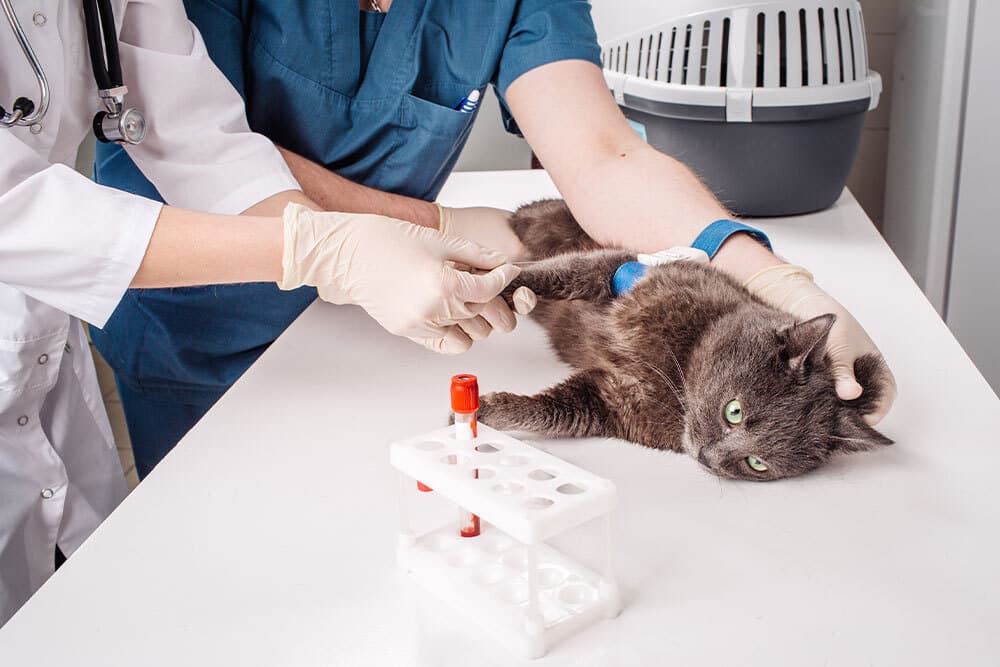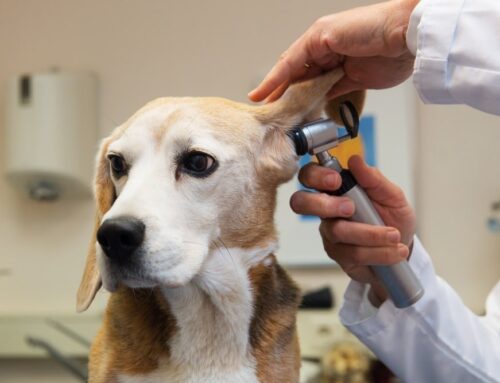As a pet owner, you want to do everything you can to ensure your dog or cat lives a long, healthy, and comfortable life. At Emerald Animal Hospital in Los Angeles, we understand how important that goal is—and we’re here to help make it a reality. One of the most effective and underutilized tools in preventive veterinary medicine is annual bloodwork. Even when your pet seems perfectly healthy, routine blood testing can reveal early signs of illness that are invisible from the outside.
Why Annual Bloodwork Matters
Preventive care is the foundation of lifelong health. Annual bloodwork gives us a detailed look at how your pet’s internal systems are functioning and helps identify diseases early—often before physical symptoms appear. Early intervention not only leads to better outcomes but can also reduce long-term treatment costs and improve your pet’s quality of life.
What Annual Bloodwork Includes
Routine blood tests provide a comprehensive overview of your pet’s internal health. Here’s what we typically analyze:
Complete Blood Count (CBC)
The CBC examines three key blood components:
- Red blood cells (RBCs): Help identify anemia, dehydration, or internal bleeding.
- White blood cells (WBCs): Detect infections, inflammation, or immune system abnormalities.
- Platelets: Evaluate your pet’s ability to form blood clots and stop bleeding.
Chemistry Panel
This set of tests evaluates organ function, metabolic health, and electrolyte levels:
- Kidney values: Blood urea nitrogen (BUN) and creatinine help assess kidney efficiency.
- Liver enzymes: ALT, AST, and alkaline phosphatase indicate liver function and potential damage.
- Blood glucose: Screens for diabetes.
- Electrolytes: Sodium, potassium, and chloride levels ensure hydration and proper cell function.
Additional Screening (As Needed)
- Thyroid function: Essential for metabolic balance, especially in senior pets.
- Heartworm and tick-borne disease testing: Particularly important for dogs in certain regions.
- FeLV/FIV screening: Recommended for cats, especially those that go outdoors or are newly adopted.
For more detail on the types of diagnostic tests we use, refer to the Merck Veterinary Manual.
The Importance of Early Detection
Pets are remarkably skilled at hiding discomfort. Many conditions develop slowly, showing no outward signs until significant damage has occurred. Routine bloodwork gives us the opportunity to intervene early—sometimes years before symptoms would become apparent.
Conditions Commonly Detected Through Bloodwork
- Kidney Disease: Early detection allows us to slow progression through diet and medication. Learn more from Cornell Feline Health Center.
- Liver Disease: Elevated liver enzymes can point to inflammation, infection, or toxin exposure. Identifying changes early allows for prompt dietary or medical intervention.
- Diabetes: High blood glucose levels may indicate diabetes, which, if left untreated, can lead to serious complications. Explore more from AAHA.
- Thyroid Disorders:
- Hypothyroidism in dogs may present as lethargy, weight gain, or skin problems. Learn more from Cornell University.
- Hyperthyroidism in cats can cause weight loss despite increased appetite and hyperactivity.
What to Expect During a Bloodwork Appointment
We aim to make your pet’s visit smooth and stress-free. Here’s how the process typically works:
1. The Blood Draw
Blood is collected via a small needle, usually from a vein in the leg or neck. The procedure is quick and causes minimal discomfort.
2. Turnaround Time
Most results are available within 1–3 business days.
3. Review
Once we have them, we’ll contact you to review the findings and answer your questions.
Tailoring Bloodwork to Life Stages
Your pet’s healthcare needs change as they age. Here’s how we adapt our approach:
- Puppies and Kittens: Establishing baseline health values early helps detect congenital or developmental issues.
- Adult Pets (1–7 years): Annual bloodwork is essential for early detection of chronic conditions.
- Senior Pets (7+ years): We often recommend bloodwork every six months to monitor for age-related diseases. Learn more about aging pet care from Zoetis Petcare.

Frequently Asked Questions
Does my pet really need bloodwork if they seem healthy?
Yes. Many illnesses don’t present symptoms until they’re advanced. Bloodwork helps us catch problems early when they’re easier and less expensive to treat.
Is bloodwork safe and painful?
It’s very safe and causes only brief, minor discomfort—similar to a vaccination.
How often should my pet have bloodwork?
Annually for adult pets and every six months for seniors or those with chronic conditions.
What if the results are normal?
Normal results are still valuable—they provide a health baseline and peace of mind.
Can bloodwork detect cancer?
While bloodwork can’t confirm cancer, it can reveal patterns—such as anemia or abnormal white blood cell counts—that warrant further investigation.
Your Partner in Lifelong Care
At Emerald Animal Hospital, we’re more than just a veterinary clinic—we’re your trusted partner in your pet’s lifelong health. Annual bloodwork is a small investment with a big return: early detection, personalized care, and better outcomes.
Whether you’re scheduling your pet’s routine checkup or you have questions about their health, we’re here to help. Contact us to book an appointment or meet our veterinary team to learn more about how we care for the pets of Los Angeles.
Together, we’ll work toward a healthier, happier life for your pet—starting from the inside out.









Leave A Comment